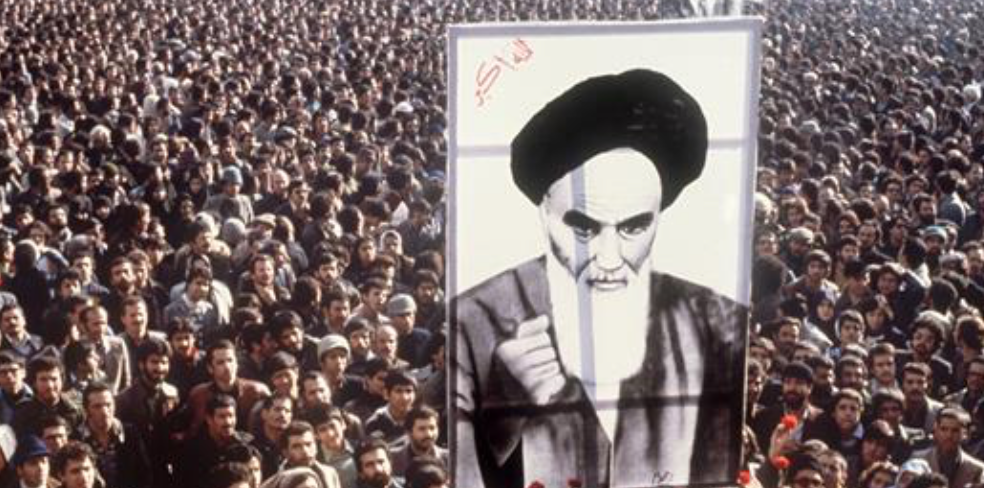Keep your eye on the ball. President Trump's performances with Kim Jong Un are not the biggest game in town. The foreign policy pot most likely to explode in the near future is not North Korea. It’s Iran.
As a former US Foreign Service Officer who has traveled in that country—and who was once even jailed there as a spy a half-century ago—I'm mindful that Iran aka Persia has always been, continues to be, and has every right to be a major player in that once lonely keystone part of the world between Europe and India. So I’m not surprised when that proud and ancient culture refuses to bend to the will of the New York real estate thug who threatens to wipe it out.
Iran and the United States are on a collision course, with the blame on both sides. We still fume about the American diplomats held hostage in Teheran for a year and a half thirty years ago. Iranians will never forget how, 25 years before that, the US and UK, mindful of oil flows, forced a democratically elected Prime Minister from power and cemented the tyranny of a dictator friendly to the US but with little interest in his people’s welfare. So we spit on each other.
And now it‘s over nuclear weapons.
Yes, the United States needs to delay as long as we can the inevitable access of Iran to nuclear weapons; the Agreement that Trump trashed was not perfect, but it was an intelligent policy that severely constricted the enrichment capabilities needed to produce weapons grade uranium.
But Trump’s additional insistence that Iran become a well-behaved lap dog—in a region where it has been a pre-eminent regional power for millennia—was and is an ignorant and insulting ambition that no Iranian government could ever agree to and that will only fuel more decades of enmity and risk between us.
For sure, we, with our allies, need to adroitly block and parry Iranian adventures where we can. But we also need to recognize that Lebanon, Syria, Iraq and Yemen are in Iran’s backyard and that significant Iranian influence over its neighbors is inevitable. At the same time, however, we need to play a longer game, recognizing that it is in our long-term interest to build stable relationships in this part of the world so far from us. We should respect Iran as a legitimate regional force—a culture and a people who were a world power 2,000 years before Columbus sailed. And who will never back down just because we want them to.
So what makes sense?
First, it’s vital to recognize that much of what drives Iranian foreign policy is not opposition to the US, but the never-ending religious war between Shia (Iran) and Sunni (Saudi Arabia, etc) Islam that’s been going on for a thousand years. US interventions in the Middle East have too frequently ignored this existential struggle, and caught us in the crossfire.
Second, we don’t have to be best friends to forge a respectful working relationship with Iran in spite of disagreements—as we have with China and Russia, for example. At the moment, they remain for us an “Axis of Evil.” We to them are the “Great Satan.” At a minimum, we need to be willing and able to talk to them, with reasonable hope that we can avoid the kind of misunderstandings that turn flashpoints into a major confrontation. And it all gets more dangerous when Iran‑—in ten years or fifteen—has the bomb and a global nuclear war, started by miscalculations by either the Iranians or a hawkish settler government in Israel, becomes a real possibility.
Third, the biggest long-term game for the US is not Iran, but China, whose relentlessly adroit soft power initiatives have expanded Chinese influence worldwide. As part of that, through its massive “Belt and Road” initiative, China is using its considerable financial, intellectual and PR power to extend its power westward across vast spaces, contested by empires for centuries, without firing a shot. Iran is right in the path of those Chinese ambitions. But so long as Iran sees “the enemy of my enemy is my friend,” they have no incentive to help us moderate Chinese expansion.
Finally, Iran is changing and we need to take advantage of the opportunities the changes present for us to build a more mutually advantageous and less dangerous relationship. I urge you to read this piece by the New York Times’ Thomas Erdbrink about the important progressive changes that have been going on for decades now in Iran. They envelop just about every aspect of Iranian life, including the rights of women, access to the Internet and to Western culture, rights of assembly, and reasonably free elections. Many of the old rules still exist, but they are ignored as people, especially young people, demand the additional freedoms they can see are taken for granted in most of the rest of the world.
The bottom line is this. We need to get smart on Iran. Ignore the bellicose rhetoric of dangerous bullies like Trump and his warhawk acolytes who seem to have no concept of the complexities and opportunities that Iran represents. The fact is that Iran is morphing in important ways that—provided we have enough patience as they play out—can only increase the chances of a peaceful and responsible relationship between our two countries—and a recognition of the legitimate role that Iran must play as a hegemon in the Middle East.
The Iranian people are not our enemy and, as the power of the theocracy that still rules them weakens, it would be madness for us to blindly keep playing the role of the “Great Satan,” when a more nuanced policy of both carrots and sticks would work so much better.

